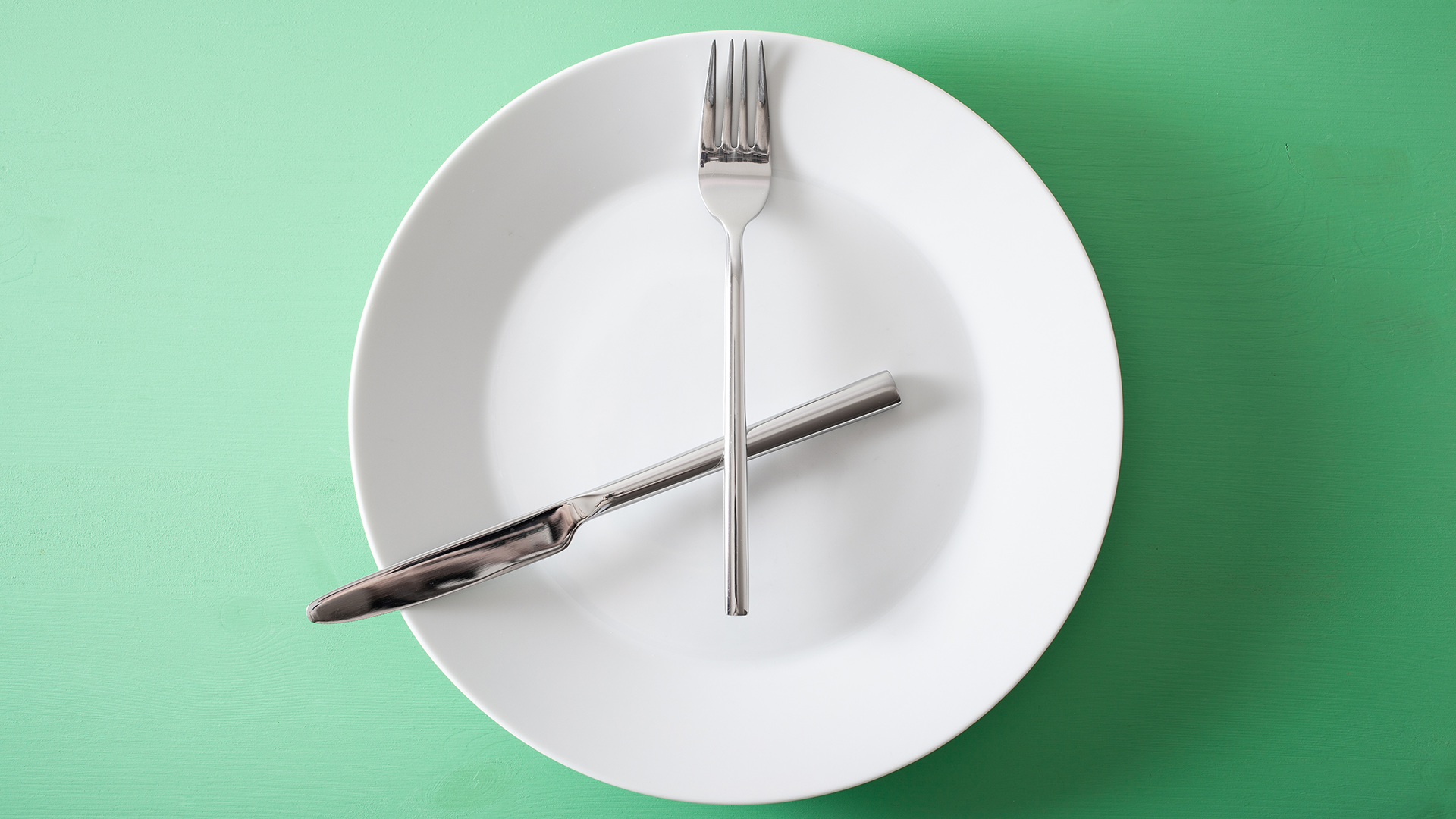Things you’ll learn in this blog |
Have you thought about fasting but still haven’t figured out what the best method is for you?
Is your aim to find the best suitable fasting method to help assist you in losing weight?
Or…are you just intrigued and want to learn more about fasting and why the practice has become increasingly popularised?
Well, look no further as we delve into some of the best and most highly rated forms of fasting to help you on your journey. There are several ways to fast, and not every method works for everybody, but don’t be discouraged if you try one and it doesn’t work for you. There are more than enough alternatives that you can choose from.
This article will take you through the different ways to fast and will help you to gain a clearer understanding of the variety of fasting methods.
What is Fasting?
Fasting is a voluntary dietary approach, where you abstain from food or drink, or both, for a particular period. The practice, which has become more popularised in recent years, has been observed in many cultures and religions throughout history – often in relation to spiritual or health reasons.
Additionally, fasting has been closely associated with various health benefits, including weight loss, improved insulin sensitivity, and decreased inflammation.
Some people struggle with what fasting technique to choose, as there are a plethora of options to choose from, but we’re here to make it simple for you.
The main different types of fasting are; intermittent fasting, water fasting, and juice fasting. There are technicalities and different structures within each of these methods, and often people tailor it to what they feel they can manage. However, some people stick to a strict fasting regime and follow the rules by the book.
Intermittent fasting involves alternating periods of fasting and eating, while water fasting involves only consuming water for a certain period. Juice fasting involves consuming only fruit or vegetable juice for a set time.
Why do people fast?
Fasting has been used therapeutically since at least the 5th century BCE. It has been reported that Greek physician Hippocrates recommended abstinence from food or drink for patients who had certain symptoms of illness. The practice of fasting has also been prevalent for many years in religion and spirituality.
Fast forward to now, fasting has become increasingly popular in recent years. While some people fast for religious and spiritual reasons, others choose to fast for health and dietary purposes. The practice has become popular for several reasons, including:
Health benefits
Fasting has been associated with various health benefits, including weight loss, improved insulin sensitivity, reduced inflammation, and improved brain function. As people become more interested in natural and holistic approaches to health, fasting has become a popular method for achieving these benefits.
Simplicity
Fasting is a simple and accessible practice that requires no special equipment or expensive supplements. This simplicity has made it an appealing option for many people.
Cultural and religious reasons
Fasting has long been a part of many cultural and religious traditions, and as these traditions continue to be practiced, fasting remains a popular practice.
Social media influence
Social media has helped popularise fasting, as individuals share their fasting experiences and success stories with others.
Celebrity endorsements
Some celebrities and public figures have publicly endorsed fasting to achieve health and wellness goals, further contributing to its popularity.
What are the advantages of fasting?
Scientists and nutritionists all over the world have researched the benefits of fasting and have widely associated the practice with a variety of health benefits, including:
Weight loss
Fasting can help to promote weight loss by reducing calorie intake and increasing metabolism.
Improved insulin sensitivity
Fasting has been shown to improve insulin sensitivity, which can help to prevent type 2 diabetes and improve blood sugar control.
Reduced inflammation
Fasting has been linked to reduced inflammation in the body, which can help to lower the risk of chronic diseases such as heart disease, cancer, and Alzheimer's disease.
Improved brain function
Some studies suggest that fasting can improve cognitive function, including memory and concentration.
Enhanced autophagy
Fasting has been shown to increase the body's natural process of autophagy, which involves the breakdown and recycling of old or damaged cells, leading to cellular renewal and rejuvenation.
Improved immune function
Fasting can help to boost the immune system by increasing the production of white blood cells and reducing oxidative stress.
It's important to note that while fasting can have potential benefits, it is not suitable for everyone. Individuals with certain health conditions or who are pregnant or breastfeeding should not fast without consulting a healthcare professional.
What are the disadvantages of fasting?
While fasting can have a lot of potential benefits, there are also some downsides to consider when choosing to fast and picking a specific method. These include:
Hunger
Fasting can lead to feelings of hunger, which may be uncomfortable or challenging to manage for some individuals.
Fatigue and weakness
Fasting can cause fatigue and weakness, especially during extended periods of fasting.
Dehydration
Fasting can lead to dehydration, especially if the individual is not consuming enough fluids during the fast.
Low blood sugar
Fasting can cause a drop in blood sugar levels, which can be dangerous for individuals with diabetes or other blood sugar-related conditions.
Headaches
Fasting can sometimes cause headaches, especially during the initial stages of fasting.
Disordered eating
Fasting can potentially trigger disordered eating behaviors in some individuals, especially those with a history of eating disorders.
Nutrient deficiencies
Prolonged fasting or fasting without proper nutrition can lead to nutrient deficiencies, negatively impacting health.
What are the best fasting options for weight loss in 2023?
The best fasting option for weight loss depends on your goals, preferences, and overall health status.
To make it easier for you to decide what fasting method would work for you, we’ve broken down the most common types of fasting.
Intermittent fasting
Intermittent fasting is when you can switch between fasting and eating regularly. People often prefer to split their alternating periods of eating and fasting according to what works with their lifestyle. However, some people want a more structured approach that works across the board for the majority of people.
There are several different methods of intermittent fasting, but the two most common types are the; 16/8 method (fasting for 16 hours and eating during an 8-hour window) and the 5:2 method (eating normally for five days and limiting calorie intake to 500-600 calories for two non-consecutive days).
Here are some more alternative ways to intermittent fast;
Time-restricted eating
Involves fasting every day for 12 hours or longer and eating in the remaining hours.
Eat Stop, Eat
This method involves a 24-hour fast once or twice per week.
Alternate-day fasting
With alternate-day fasting, the goal is to fast every other day. You can choose which day you start the fast.
The Warrior Diet
The Warrior Diet was among the first popular diets to include a form of intermittent fasting. This method involves consuming small amounts of raw fruits and vegetables during the day and eating one large meal at night.
Water fasting
Involves only consuming water for a set period, usually 24 hours to several days.
Juice fasting
This involves consuming only fruit or vegetable juice for a certain period of time.
Alternate-day fasting
This involves fasting every other day or consuming only a few calories on fasting days.
Time-restricted eating
This method limits the daily eating window to a set number of hours, such as 8 hours.
Who should avoid fasting?
Fasting can have many potential health benefits, but it is only suitable for some. If you’re considering fasting, you should bear these exemptions in mind. Here are some groups of people who should avoid fasting:
Children and teenagers
Fasting can interfere with growth and development, so it is not recommended for children and teenagers.
Pregnant or breastfeeding women
Fasting can deprive the body of important nutrients and energy, which can be harmful to the developing fetus or infant.
Individuals with a history of disordered eating
Fasting can trigger disordered eating behaviors and should be avoided by individuals with a history of eating disorders.
Individuals with certain medical conditions
Partaking in fasting can be dangerous for individuals with certain medical conditions, such as diabetes, heart disease, and kidney disease. It is important to consult with a healthcare professional before fasting if you have any underlying health conditions.
For Individuals who are underweight
Fasting can lead to further weight loss and is not recommended for individuals who are already underweight.
Individuals taking certain medications
Fasting can interact with certain medications and may affect their effectiveness. It is important to consult with a healthcare professional before fasting if you are taking any medications.
So, which fasting method should I choose?
Ultimately, the best fasting method for weight loss depends on your goals, the reality of your lifestyle and your health. Based on these factors, you can weigh up which fasting method will be the most beneficial to you and start with the one that seems the easiest for you to achieve.
The most common and popular method amongst most people is intermittent fasting. You can try the 16/8 method or the 5:2 method.
There is no right answer, and many people try various methods before they find one that works best – so don’t be disheartened if you try one and it doesn’t work well for you.
Before you consider fasting, it's super important for you to understand that the practice is not suitable for everyone, and individuals with certain health conditions or who are pregnant or breastfeeding should not fast without consulting a healthcare professional.
If your aim is to lose weight on your fasting journey, PhenQ’s weight loss aid offers a unique formula that targets key areas to help you feel less hungry, which can make it easier for you to fast.
For instance, if you start your eating window in the morning, having PhenQ with your breakfast can help you to feel fuller for longer. The products help to suppress your appetite, making it easier to fast. It’s a great way to help manage unhealthy cravings and support your intermittent fasting journey.
PhenQ’s weight loss aid can also increase your mood and energy levels, which will help during fasting.
However, PhenQ’s weight loss aid is not a quick fix, meaning you must still eat well and exercise. The products will help burn stored fat and assist you with having a more controlled appetite.
To find out more about how PhenQ can help you lose weight, have a look here. You are now fully equipped to start, and can always come back to this page for reference.



